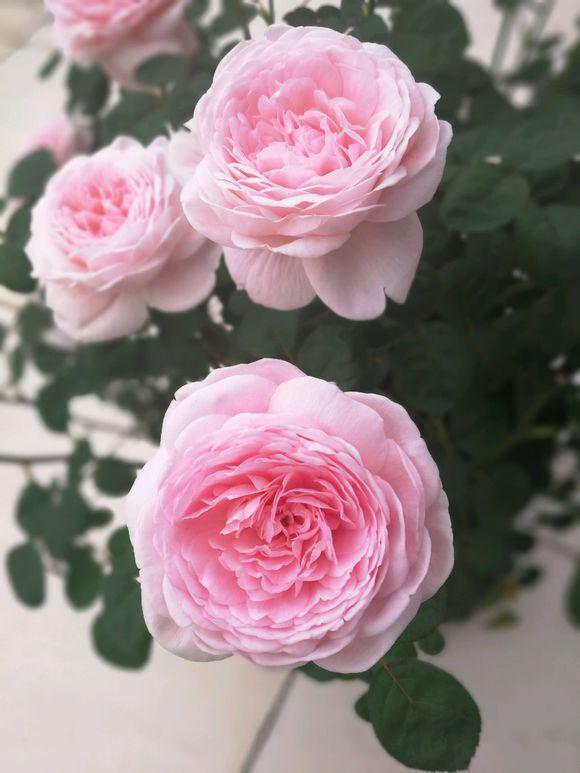Pick up something by the side of the road and throw it into the basin. I didn't expect the flowers to grow crazy.

Friends who like to grow flowers all know that if you want to take good care of the flowers at home, it is absolutely impossible to take care of them in strict accordance with the instructions, and sometimes you need to take some ingenious measures to make the flowers and plants grow better.
Take the nutritious soil in the flowerpot, for example, many flower friends will go everywhere to find the proportion of the soil, hoping that a good nutritious soil can promote the healthy growth of flowers. But little do you know that picking up something by the side of the road and taking it home and throwing it into the flowerpot will make the flowers flourish and grow unstoppable.
Charcoal
Charcoal has good water retention and heat preservation properties, is an ideal flower-growing material, and charcoal is also rich in nutrients, such as calcium, phosphorus, etc., which is very beneficial to the healthy growth of flowers.
First break the charcoal, rinse the small pieces in clean water several times, and then dry and disinfect.
Pass through the charcoal fragments with a sieve, and then put the larger charcoal at the bottom of the flowerpot to enhance air permeability and prevent plant roots from rotting.
As for the smaller particles, they can be directly mixed with the flower soil and used as the material of the nutritious soil, which can fully promote the rise of flowers.
Foamed plastics
Styrofoam is relatively light, put into the basin will not affect the root growth, and it has a very good air permeability, which is conducive to improve the drainage function of the soil.
Wash and dry the foam, tear it into small pieces of about two centimeters, and then pad it at the bottom of the flowerpot.
When using, pay attention to the amount of foam you put in. The height of foam at the bottom of the basin should not exceed 1/5 of the total height of the flowerpot. In this way, the drainage and permeability of the soil can be greatly improved.
Nut shell
For example, walnut shells and Hawaiian fruit shells are good materials for growing flowers. The texture of these nut shells is relatively hard and is not easy to be corroded and degraded by microorganisms, so putting them in the basin can enhance the air permeability of the soil.
After rinsing the nut shell with clean water, beat it to pieces with a hammer, etc., and then mix the fragments of the nut shell with the soil.
Or you can not break the nut shell, then wash it and put it upside down at the bottom of the flowerpot, which can also increase the air permeability inside the flowerpot and prevent stagnant water from rotting the roots.
Coal cinder
Due to the full combustion of the flame, the cinder contains a large number of small pores, which can improve the drainage performance of the soil. And there are many trace elements beneficial to the growth of flowers in the cinder, which can provide nutrients for the growth of plants.
First of all, the cinder is washed and dried repeatedly, and then the cinder is screened to distinguish between the small part and the large part.
The small part of the particles is mixed with the soil and used as a nutritious soil for the maintenance of flowers, while the larger cinder is directly placed at the bottom of the flowerpot to increase the overall air permeability of the soil.
Broken brick and tile
In fact, the broken bricks and tiles common in the construction zone are also good flower-growing materials. Putting some broken bricks and tiles at the bottom of the flowerpot can not only drain and ventilate, but also preserve water and increase fat, which is very good.
First of all, rinse the broken bricks and tiles repeatedly with clean water, wash them and dry them, and knock them into pieces less than 1 cm in diameter.
Then sift, put the larger particles in the broken tiles directly at the bottom of the flowerpot, and mix the smaller broken brick particles with the soil.
If you also like growing flowers, follow us!
- Prev

After eating the apple core, it can grow into a good-looking potted plant by throwing it into the soil.
The weather is getting cooler, and many autumn fruits are gradually coming on the market. When it comes to fruit, Huahua's first thought is apple, which is not only the reason why she likes to eat it. People often say, "an apple a day keeps you away from me when you get sick." It can be seen in.
- Next

When the cover is raised, the rose is watered, and the flowers are clustered.
Rose cultivation, watering, fertilization, soil, light, pruning, all indispensable, everything is the key to today's flowers to say is the problem of watering, as long as there is a little more material inside, the flowers will go from blossoming to clusters...
Related
- Wuhan Hospital Iron Tree Blooming Result Was Instantly Frightened by the Gardener Master
- Which variety of camellia is the most fragrant and best? Which one do you like best?
- What is the small blue coat, the breeding methods and matters needing attention of the succulent plant
- Dormancy time and maintenance management of succulent plants during dormancy
- Minas succulent how to raise, Minas succulent plant pictures
- What are the varieties of winter succulent plants
- How to raise succulent plants in twelve rolls? let's take a look at some experience of breeding twelve rolls.
- Attention should be paid to water control for succulent plants during dormant period (winter and summer)
- Watering experience of twelve rolls of succulent plants
- Techniques for fertilizing succulent plants. An article will let you know how to fertilize succulent plants.

